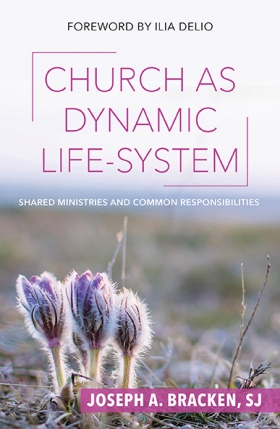Shared ministries and common responsibilities

Part of the Theology series:
- A Theology of Dao
- A Church of the Poor
- Catholic Social Thought
- Do Not Stifle the Spirit
- The Joy of Religious Pluralism
- The Future of Interreligious Dialogue
- The Problem of Wealth
- Essential Catholic Social Thought
- The Unmoored God
- The Holy Spirit and an Evolving Church
- Creation and the Cross
- A Poor and Merciful Church
- The Catholic Ethicist in the Local Church
- Choosing Peace
- American Catholicism in the 21st Century
- Loneliness
- Virtue and Theological Ethics
- Just Water
- Experiments in Buddhist-Christian Encounter
- Christian Ministry in the Divine Milieu
- Church as Dynamic life-style
- The Election of Pope Francis
- Introduction to Catholic Theological ethics
- You Say You Want A Revolution
- Deep Incarnation
- Abuse and Cover-up
- New Paths for Interreligious Theology
- Christian Ethics
- Faith and Evolution
- Building Bridges in Sarajevo
- The Liminal Papacy of Pope Francis
- Marcus Mescher: The Ethics of Encounter
- Doing Theology in an Evolutionary Way
- Fratelli Tutti
- Christian Social Ethics
- Street Homelessness and Catholic Theological Ethics
- Deep Calls to Deep
- Pope Francis
- Breathed into wholeness
- Religious Life for our World
- La Via della Bellezza
- conscience and Catholic education
- Enacting Catholic Social Tradition
- The Authority of the Saints
- The Hidden "God"
- Globalizing Theological Education for an Increasingly Globalized Age
- Thoughts and Dreams of an Old Theologian
With the goal of sustaining the relevance and, paradoxically, the permanence of the church, Bracken proposes an open-ended systems approach to ecclesiology. He synthesizes the work of Pierre Teilhard de Chardin and Alfred North Whitehead to produce his novel argument, which is grounded in the language of process theology and a continually evolving universe.


